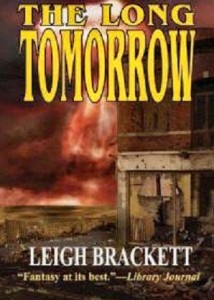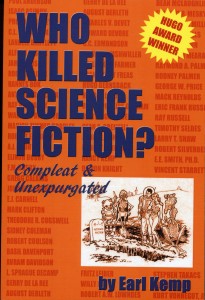I am inspired to write this because of two things, one significant, the other merely annoying. I start with the merely annoying.
I’m hopelessly behind the curve tech-wise. I can barely make my way around the internet, and if something melts down on my computer I run in panic from the room wondering who to call to fix it. Partly, this is a result of being too busy the last three decades to keep up, partly it is a response to the incessant demands of the digital marketplace to constantly, eternally acquire the latest gadget, the newest thingie, the most recent incarnation of Nousmasticator 3.1, all of which is both time consuming to install and maintain and often pretty damn expensive. As a child I remember jokes about people who had to buy a new car every year, which later morphed into the “planned obsolescence” of Detroit product that required a new model after sixty thousand miles, but the auto industry never had a thing on the computer world. I resent it. Perversely, I’ve refused to keep abreast. This is classic surgical removal of probosci to articulate displeasure with one’s demeanor.
And it’s petty.
This morning a notice for an available upgrade appeared in the hopper of my blog and I haplessly accepted it. My blog promptly disappeared. After messing with this, on the phone and by email, for over an hour, I discovered that for some reason the upgrade trashed the files of the existing blog template, rendering it unusable. Since my system indicated that I still had the damn thing in my archives, I was unable to upload a new version and had to install a brand new theme. You’re looking at it now. And actually I kinda like it.
But that’s not the point. I shouldn’t have had to go through all that nonsense. I do not need another little Gordion knot of dyspeptic resentment toward the nature of the modern world binding itself into my psyche along with all the other little bits of tedious, petty anoetic effluvia cluttering up my memorative gestalt.
Which brings me to the other inspiration for this piece.
Recently, I received in the mail volume 6 of Harlan Ellison’s On The Road lectures. (An aside, briefly, to suggest you avail yourself of some of these, especially if you are an appreciator of the spoken word and good repartee—they are collections of Harlan’s public presentations over his long career and they are a delight. They are available by mail through here.) The liner notes of this one comprise a longish essay by Harlan in which he discourses on one of his attributes.
He is, he claims, a petty man.
This is also part of his acceptance speech for the Grand Master of Science Fiction Award, given him by SFWA in 2006 (included in this collection, along with Neil Gaiman’s excellent prefatory words). He’s copping fair on a characteristic he expresses some regret over, some wonderment about, a puzzle, a burden, an inextricable part of his nature.
My initial reaction was big deal, aren’t we all? Then I thought he might have been laying the groundwork for distancing himself, the man he is, from the work he has done, leaving behind nothing unadmitted and owned up to for future biographers, chroniclers, and literary archaeologists (and, let’s face, academic parasites) to “discover” and base a “reassessment” on which will completely miss the point.
In one of the best author biographies I’ve ever read, Julie Phillips, in her chronicle of the life of Alice Sheldon, aka James Tiptree Jr., manages to do something rare and remarkable, which is to study the source of fiction without suggesting that the fiction is useful for some kind of psychoanalysis. She examines the forces in Sheldon’s life that led her not only to adopt a deep cover pseudonym from which to write but to write the kinds of stories she did, but at no point does she suggest the stories are what they are only because Sheldon was troubled, flawed, paranoid, suicidal, whatever. In Phillips’ hands, the stories are something apart, works of art, certainly created out of the life that shaped them, but once created took on separate status, to be regarded on their own terms and not taken apart or essentially deconstructed based on who Sheldon was (or who we might think she was). Sheldon wrote the way she did out of her own essence, true, but she nevertheless created something distinct from herself that should be taken on its own terms, for what it is, not for who made it.
Harlan has as vivid a public presence as himself as his work does as itself. It’s evident, reading over his essays, that he has mined himself for the substance of his stories, for the raw matter that he then shapes into dramas. It is legitimate to say that he assays autobiographical themes in many of his best stories, even as it is a mistake to see the stories themselves as autobiographical. He’s done what good artists do—lived, reacted, felt, put the result into his art, saying to us “I am human, I have felt these things, witnessed these things, concluded these things, and because you, too, are human you will know what I’m saying to you.” He is not saying in his fiction “This is who I am” but more importantly “This is who we are.”
But because we live in a culture obsessed with celebrity and the insistent need to bring everyone down to the level of those who prance shamelessly upon the stages of talkshows where their least indiscretion is blown up into a life-changing, earth-shaking moral verdict, it is too often the case that biography trumps creation in the mind of the Public Beast.  Separating the artist from the work is a problem, because the work, while inextricably part of the artist, is not the artist. The work is the work.
With that in mind, I read the essay thinking that this was something Harlan was trying to do. “I know who and what I am and I’ll tell you about it here and now so you don’t have to let its discovery later poison the work I have done.”
I’ve since reread the essay and listened to more of the CD and I don’t think that’s what he was doing. At least not primarily.
He relates an instance of coincidental karma concerning another writer and cosmic payback. Within the context of his theme—I am a petty man—he suggests that petty gets what petty gives. It is perhaps an examination of the conundrum some people are that the more they have, the more they succeed, the higher up whatever ladder they’ve been trying to climb they get, it is the little things that never let them fully be as complete as the work they do.
We’re all petty. Not so much that we do petty things, but that we have petty thoughts and petty concerns. Myself, I have a roomful of memories in my hindbrain of embarrassing, unkind, thoughtless things I’ve said and done that I just can’t seem to be rid of. Most of the time I don’t think about them, but every once in a while, when I’m least expecting it, one of these damn things pops up in my mind and taunts me with the fact that there is nothing I can do to change it! It happened, it’s done, it’s part of history, and I can never undo it. I obsess over them for a while, imagining myself behaving differently, using different words, taking a different course, or just paying closer attention at the time. I’m a writer, I can imagine whole novels of better responses, better motives, better outcomes.
But there’s nothing I can do and apparently I can’t even forget them.
Like time and motion studies, I analyze them for clues of my essential cluelessness, which I will also never be able to change, because I didn’t understand it at the time. Or maybe I did but I still didn’t think it was a bad idea. Or I knew, but couldn’t figure out how, at the time, to avoid the mess it was about to be. I rework them in my head, trying vainly to optimize the therbligs of my past and utterly helpless to do so.
I consider my continual obsessions with these things petty. The events themselves were petty, inconsequential in the greater scheme of my life, and I imagine that the other players may well not recall them at all. But I can’t let them go.
They do turn up in my fiction. Not the events themselves, usually, but the fact of the pettiness, the nature of the embarrassment or resentment or anger or stupidity.
And it doesn’t help to Know Better. It is part of my nature.
Confessing doesn’t help either. I could detail here some of the things that occupy these worthless interludes of longed-for repair, but it wouldn’t do me a bit of good. I’ve learned that sharing embarrassment doesn’t really lessen it, but it does lessen the anxiety you might have that people will judge you for the events in question.
I suggested that a word had been left out of Harlan’s claim. It should have read “I am a petty man too.” He might just as easily have said “I am a compleat human being, having my full measure of all that is human.” That has the advantage and drawback of distracting people from his point, because, while true, it allows for a generous reception and validation of that “compleatness” as an altogether admirable thing.
I think he wanted people to focus on a specific point. “I am a petty man” is the same as saying “It is human to be petty” and therefore, “we’re all petty.”
From time to time, here and there, more or less.
Let me tell you something not petty about Harlan Ellison.
Donna and I attended his last convention, MadCon 2010, in Madison, Wisconsin. We were in the hotel lobby when he came in. It was the first time we had seen each other since 1996. Prior to the convention, when it wasn’t a sure bet that he would make it, due to health issues, I sent him a few photographs I’d taken at that prior occasion. They weren’t great pictures, but I thought he might want them for his archives. In fact, they were pretty much not good. When he realized who I was, he put a hand on my shoulder and said, “Tiedemann, those were the worst pictures in the world. Terrible.” In front of a small audience.
By Sunday, he was dancing on his last nerve, and still signing autographs. I’d given up trying to get one and just lingered at the periphery, and for whatever reason he looked straight at me and said, “Tiedemann, go. Just go.”
I riffled my brain to figure out what I’d done, but he had The Look, and I knew better than to argue, so Donna and I went to dinner.
Afterward, we came back into the hotel. The lobby was empty except for Harlan and Susan. Whereupon he sat down with us and we had half an hour of very good, private conversation. He was generous, interested, and, I think, appreciative, at least of the chance to quietly talk to just one or two people, away from the crowds and the demands of Being On. Whatever, it was special and very, very human. (No, I won’t tell you what we talked about, it’s none of your business.)
As I said, petty gets as petty gives. As far as I’m concerned, Harlan can cop to being petty if he wants, and he would know, but that is simply not my take on him. He gets no petty from me because he’s never given me any.
In the final analysis, we should strive to regard people by their best. If we can’t, at least we should remember that no one is a homogeneity. We are all amalgams. And from certain amalgams, strange alloys, bright, alien, and dark, emerge in gnostic forms and Damascene patterns, texture of nous and passion…








